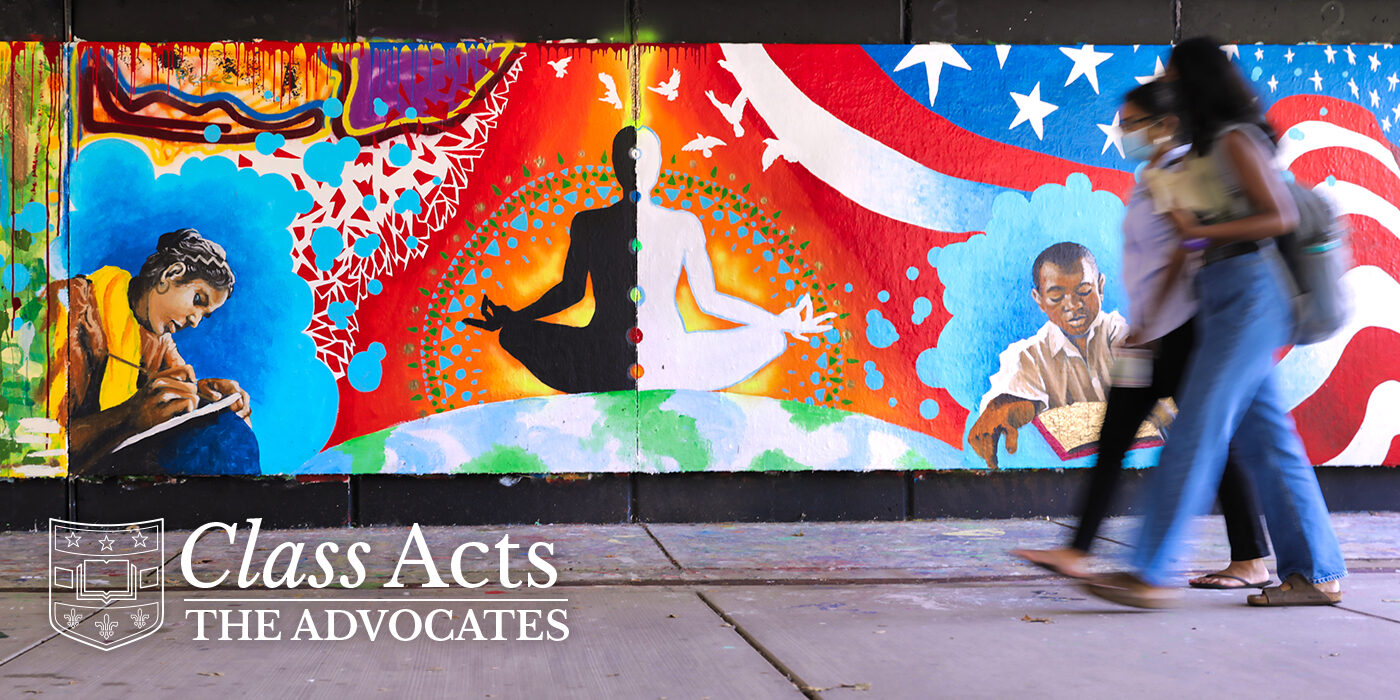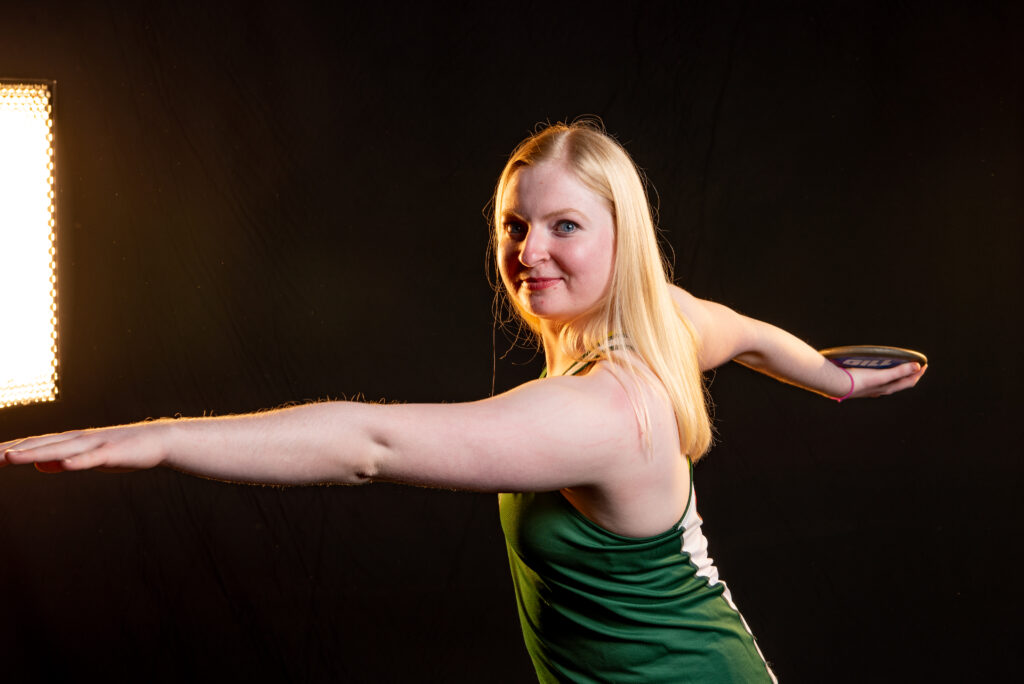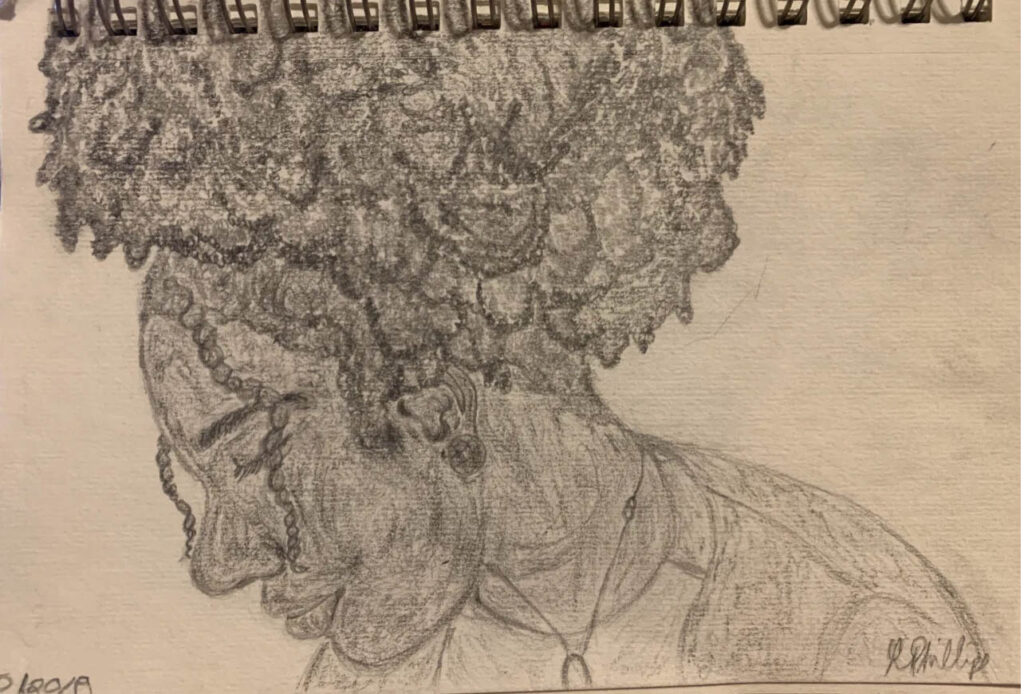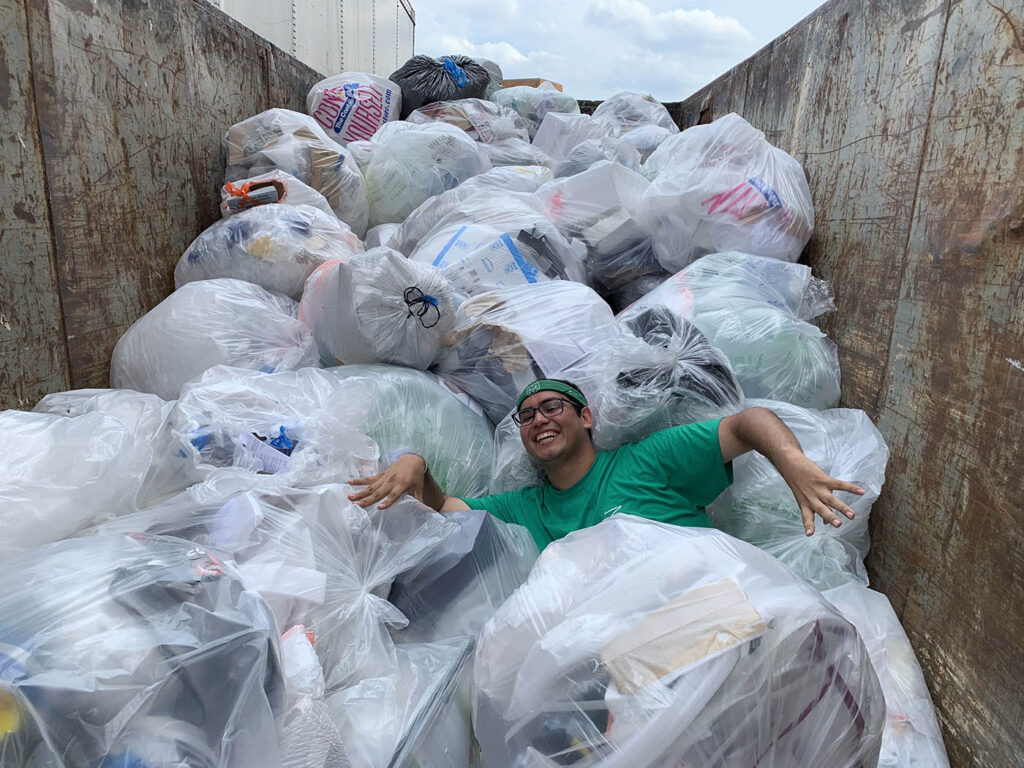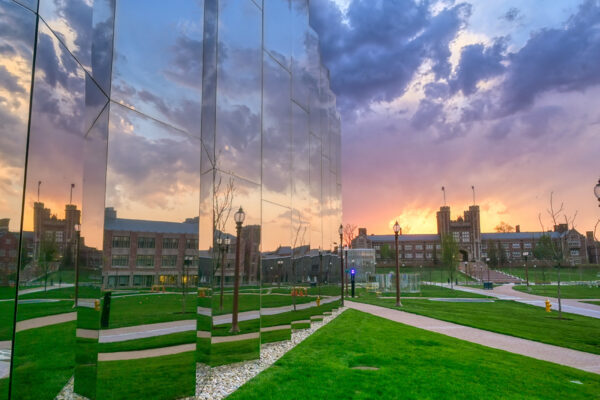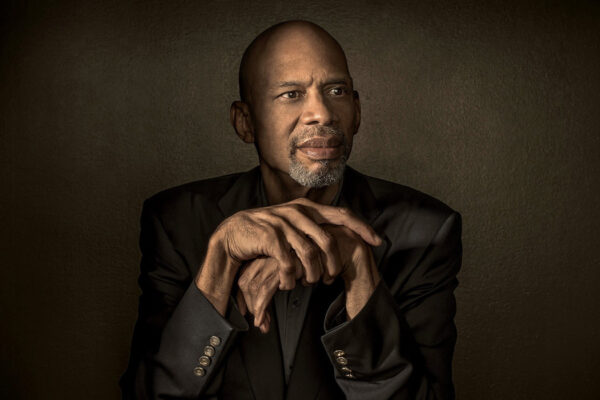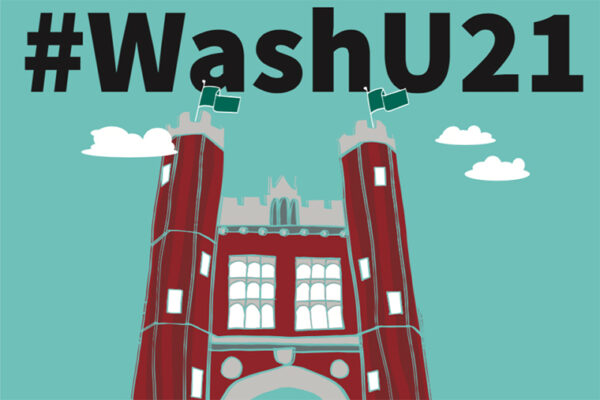Welcome back to Class Acts, a celebration of the Class of 2021. Last week, we recognized The Makers. This week, we spotlight advocates Leah Wren Hardgrove, Logan Phillips and Alexis Tinoco, three seniors working to make a difference.
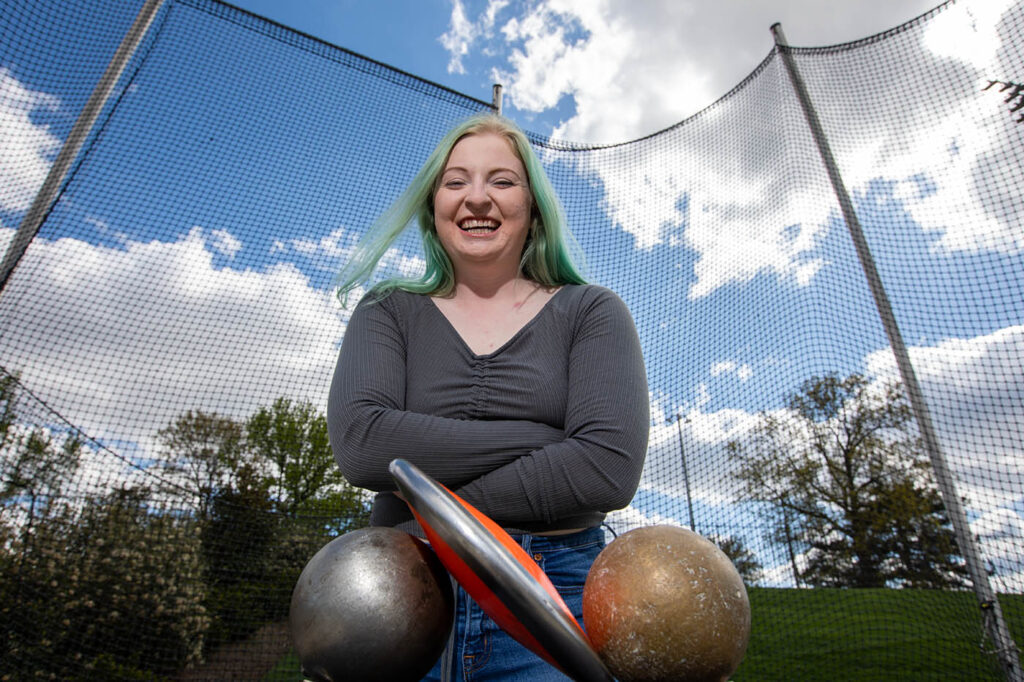
Leah Wren Hardgrove came to Washington University in St. Louis with the desire to make the world a more accessible and inclusive place for people with disabilities.
Born legally blind, Hardgrove grew up understanding that society was not built for her.
“I would not be who I am without my disability, and I would never choose to not have my disability. The discomfort I’ve experienced is what motivates me to make the world a better place,” Hardgrove said.
She envisioned going to law school, but discovered a different path though business. Her “aha” moment came when Starbucks announced its eco-friendly plan to eliminate plastic straws.
“It wasn’t legislation; the company had the power. And it had a ripple effect on others,” said Hardgrove, noting the move came at a cost: some people with disabilities need straws. “Clearly, if I want to make lasting societal changes, I need to be in business.”
Hardgrove is set to graduate in May with dual degrees in marketing and organization and strategic management from Olin Business School. Marketing, she said, has the power to normalize disabilities through better representation. Yet many aspects of marketing — like print ads — are not accessible for people with certain disabilities.
Hardgrove was selected as a Lime Connect Fellow, a highly competitive leadership development program, where she connected with other student leaders with disabilities. She also interned at Google, where she contributed to an accessible marketing guide for advertisers and hosted talks about good representation in media.
“Google is the industry leader. If they adopt accessibility practices, it will have a domino effect on others,” she said.
At Washington University, Hardgrove was a thrower for the track and field team and a member of Alpha Phi Omega service fraternity. Over the last year, she has made and donated face masks with a clear plastic mouth covering so others can read lips.
After graduation, Hardgrove returns to Google, where she will serve as associate product manager. “Society is not built to include people with visible and invisible disabilities, and I’m going to change that through strategic product development, people management and brand management,” she said. “Nobody should feel less valuable because of a physical or developmental difference.”
— Sara Savat
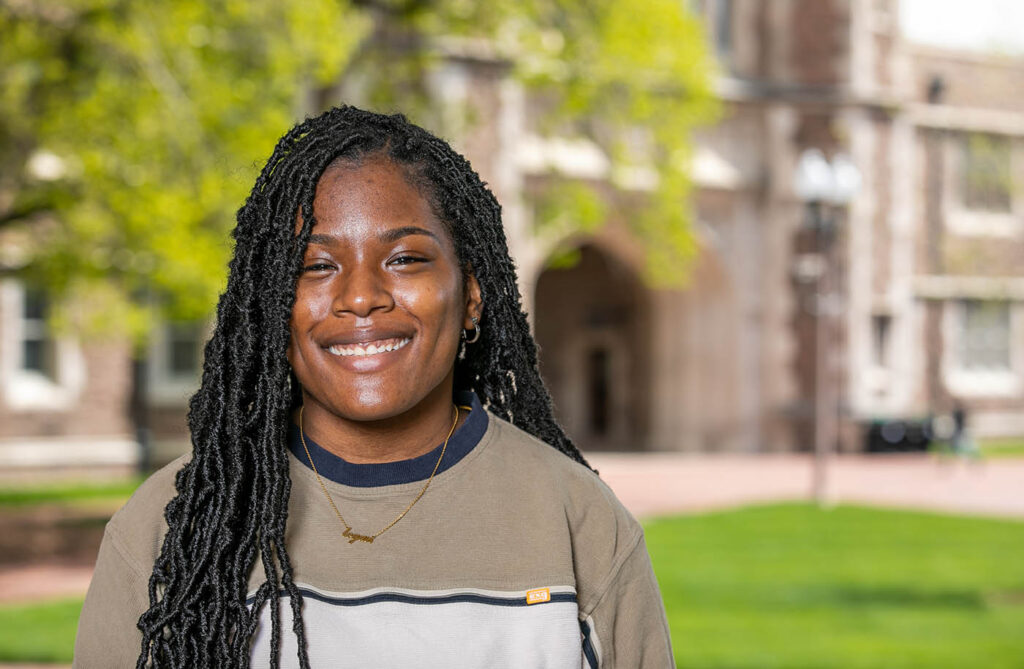
Senior Logan Phillips calls Black History Month “a time for blissful remembrance and celebration.” But is that all there is?
“Black History Month needs to go beyond those 28 days because people were Black before those days started and they will be Black beyond those days,” said Phillips, who is set to graduate with a dual degree in African and African-American studies and sociology from Arts & Sciences.
Phillips wants better.
“Narratives for Black history are often narrow, focusing only on enslavement or popular activists like Rosa Parks,” Phillips said.
The first-year seminar, “Self and Identity in African-American Literature,” opened Phillips’ eyes to gaps in K-12 education. The seminar discussed figures like Malcolm X, Martin Luther King Jr. and programs like the Federal Housing Administration.
“I recalled learning about some of these topics, but here we looked at them from a different lens, one that centered the Black experience and struggle,” Phillips said. “I realized I had only been told part of the story.”
Today, Phillips is working to create a new story. As an intern at the National Black Child Development Institute, Phillips found culturally relevant books for its “Love To Read” program and supported its mission to expand early childhood education for Black children. As a City Faces mentor, Phillips introduced her teenaged mentee to the Griot Museum of Black History. And as a Learning Lodge tutor to a first-grader, Phillips uses books with characters of color, including those that reflect her student’s own heritage.
Phillips reflects on these experiences, shares resources and amplifies the work of Black educators and community leaders on her site blkgirleduvist.com, which she developed as a Mary and Tom Stillman Civic Scholar with the Gephardt Institute.
“I believe that education is something that extends beyond the physical walls of a K-12 classroom,” writes Phillips, who plans to earn a PhD in African and African-American studies. “Ensuring that this awareness is amplified across different groups, identities and backgrounds in an effort to advance a collective mindset that centers coalition and solidarity is critical.”
— Diane Toroian Keaggy
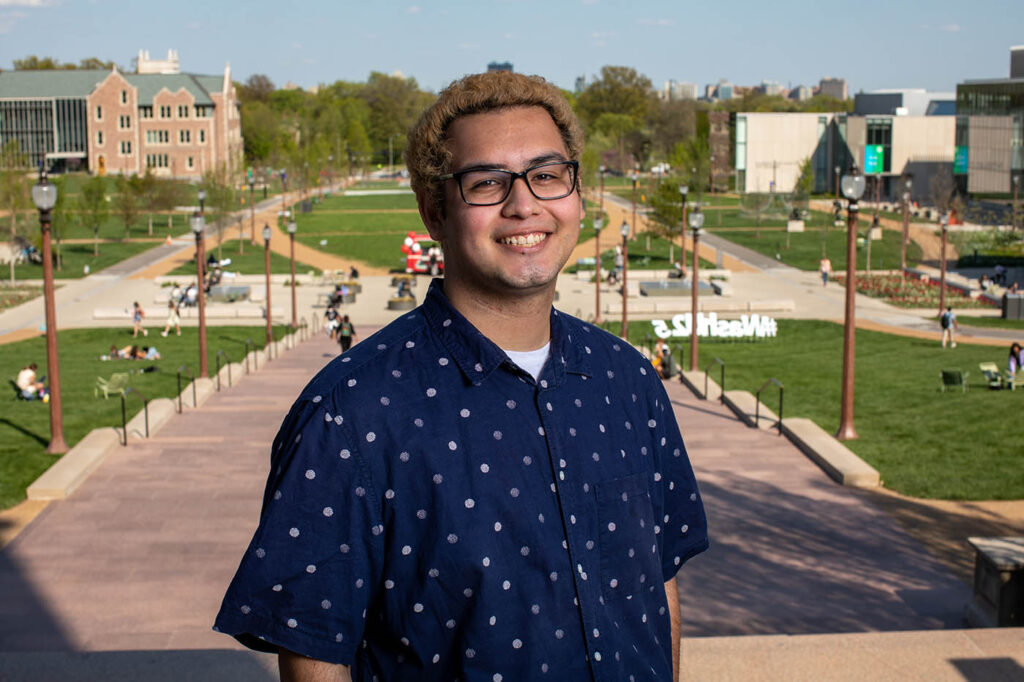
Underclassmen may remember Green Ambassadors leader Alexis Tinoco from their first days on campus. He was standing between them and Bear’s Den trash cans, tossing their to-go boxes into the compost and their chip bags into the trash.
“We showed them what goes where and how they can be part of sustainability efforts on campus,” said Tinoco, who expects to graduate in May with a degree in environmental biology from Arts & Sciences. “People want to do the right thing, but it takes education and connection.”
Since his arrival on campus, Tinoco has worked to reduce waste on campus. He introduced dorm-room composting to the South 40 and successfully lobbied the Office of Residential Life to fund the program. Since 2018, the program has diverted 40,430 pounds of compostable waste.
Tinoco also helped run the Office of Sustainability Greenware program, which provides reusable dishware for student events and faculty meetings. And as president of the Student Environmental Council, he advocated for changes to the Eco2Go program, which provides reusable to-go boxes at campus dining halls. The boxes can be used 1,000 times but often end up in the trash.
“We researched similar programs and recommended Dining Services add labels and consider implementing a token system next year,” Tinoco said. “Now the program is in a position to be the strongest it has ever been.”
By encouraging students to reduce trash on campus, Tinoco is helping to preserve biodiversity across the globe.
“Everything is connected,” said Tinoco, who wants to pursue a career in community-based conservation management. “We see waste as a local issue, but in reality, its impact reaches far beyond the local landfill. From the people paid low wages to sort our plastic to the natural ecosystems disrupted by pollution, trash has a major effect on people and the planet.”
— Diane Toroian Keaggy
